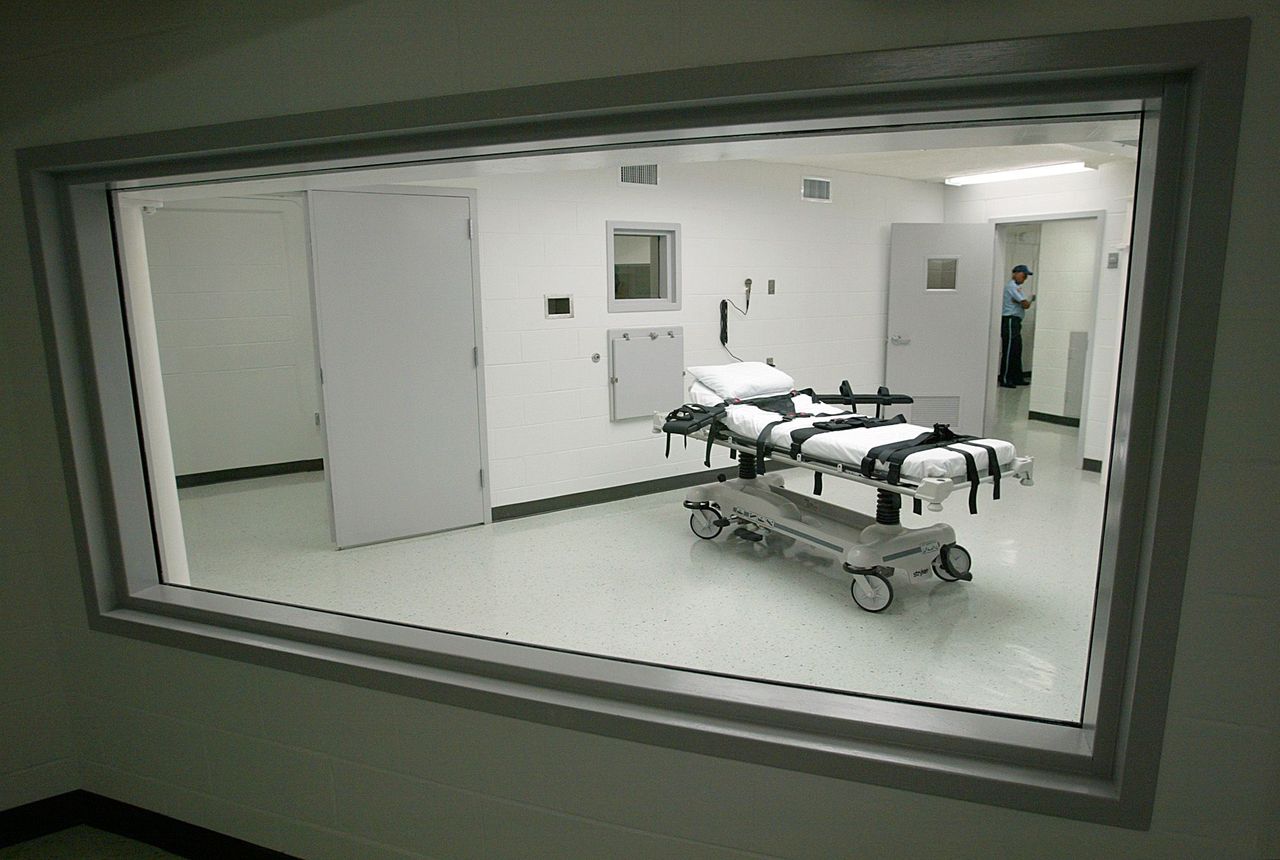Judge denies motion to dismiss lawsuit by death row inmate Kenneth Smith
A federal judge has denied Alabama’s motion to dismiss a lawsuit brought by death row inmate Kenneth Eugene Smith, who the state tried unsuccessfully to execute in November.
U.S. District Judge R. Austin Huffaker Jr. ruled Wednesday that Smith has made plausible claims that the state would violate the 8th Amendment prohibition on cruel and unusual punishments if it tries to execute him again by lethal injection.
Huffaker granted the state’s request to dismiss some of Smith’s claims, including claims for monetary damages.
The state’s failure to execute Smith in November was the third straight time the Alabama Department of Corrections execution team had problems accessing the veins of inmates during lethal injection. It followed the execution of Joe Natham James Jr. in July 2022, which took three hours, and the failed execution of Alan Eugene Miller in September, which was called off after about 90 minutes of trying to set up the IV.
After the failure to execute Smith, Gov. Kay Ivey called for a pause in executions for a “top to bottom” review of the procedure. That review ended in February, clearing the way for executions to resume. The state has not set a new execution date for Smith.
The state is scheduled to execute James Edward Barber during a 30-hour period that starts July 20. Barber has filed a lawsuit seeking to block his execution by lethal injection. U.S. Chief District Judge Emily C. Marks held a hearing in Barber’s case on Wednesday. Barber testified remotely by video from Holman Correctional Facility.
Smith was sentenced to death for 1988 murder-for-hire of Elizabeth Dorlene Sennett, a pastor’s wife from Colbert County who was fatally stabbed and beaten.
Huffaker, in his opinion and order issued Wednesday, said Smith plausibly alleged pain and suffering during his execution attempt that went beyond receiving multiple sticks with needles in attempts to tap his veins. Huffaker wrote that Alabama has released no information about the “top to bottom” review that shows it has fixed the problems that happened during the last three executions.
“The Defendants (the state of Alabama) argue that difficulty establishing IV access and the pain resulting from being poked and prodded with needles does not rise to the level of cruel and unusual punishment,” Huffaker wrote. “But Smith does not claim that the use of needles to establish venous access is per se cruel and unusual punishment.
“Instead, Smith claims that a second attempt to execute him by lethal injection would amount to cruel and unusual punishment given the extreme pain and suffering he says he experienced during the first execution attempt, along with the State’s prior unsuccessful attempt to execute Alan Miller in September 2022 and the alleged problems with the State’s execution of Joe Nathan James in July 2022; and the absence of allegations that the State has made changes to its execution procedures, aside from the public assertion of a ‘top-to-bottom review’ of the protocol.
“These allegations permit a reasonable inference that the State’s acts and omissions in carrying out (or attempting to carry out) lethal injection executions amount to an ongoing pattern rather than a mere ‘isolated mishap.’”
In the hearing in Barber’s case on Wednesday, lawyers for the state said one key change made after the review of the execution process is that Alabama has a new execution team with certified medical credentials.
In Smith’s case and Barber’s case, courts have said Alabama’s development of nitrogen hypoxia as an alternative method of execution is a factor that helps sustain the inmates’ claims against legal injection. The Legislature approved nitrogen hypoxia in 2018. The ADOC has said it is not ready to use the method, which no state has ever used. Huffaker cited a ruling by the 11th Circuit Court of Appeals that said nitrogen hypoxia is a feasible alternative.
Richard Anderson, an attorney for the state, said during Wednesday’s hearing in Barber’s case that nitrogen hypoxia would not be ready in time for Barber’s scheduled execution date.
In Smith’s lawsuit, Huffaker also allowed the case to proceed on Smith’s claim that another attempt to execute him by lethal injection would violate his equal protection rights. That claim is based on Alabama’s treatment of Doyle Hamm, who the state was unable to execute in 2018 because of the inability to tap his veins. The state agreed not to try again. Hamm died in prison of cancer.
